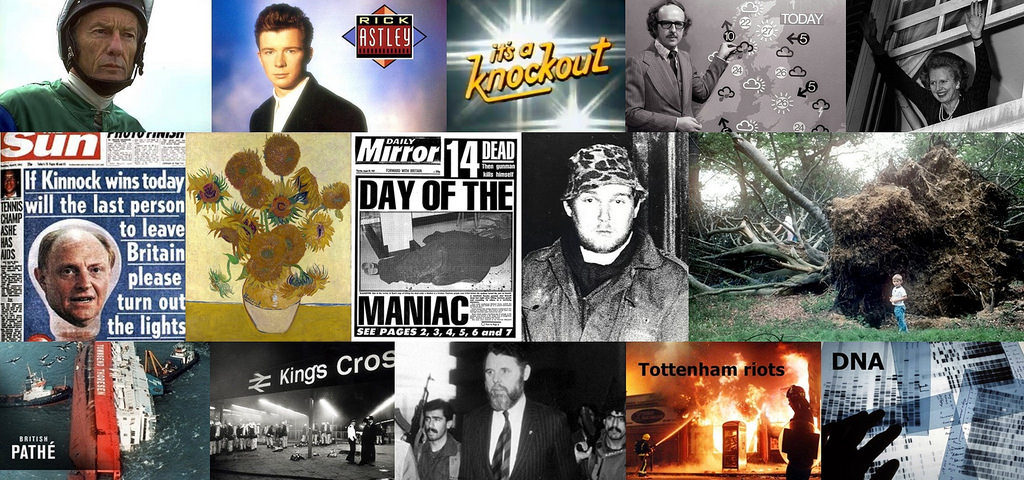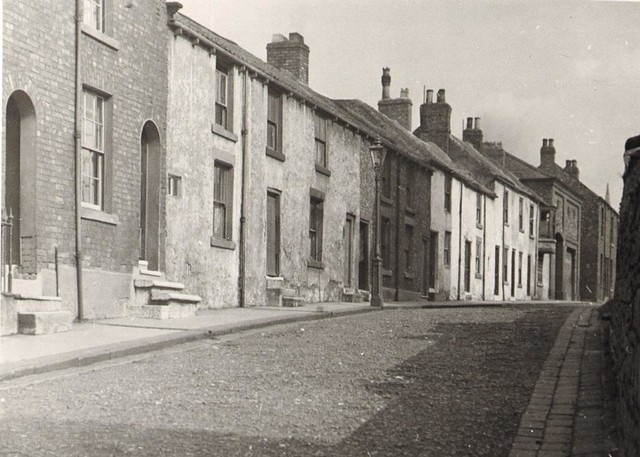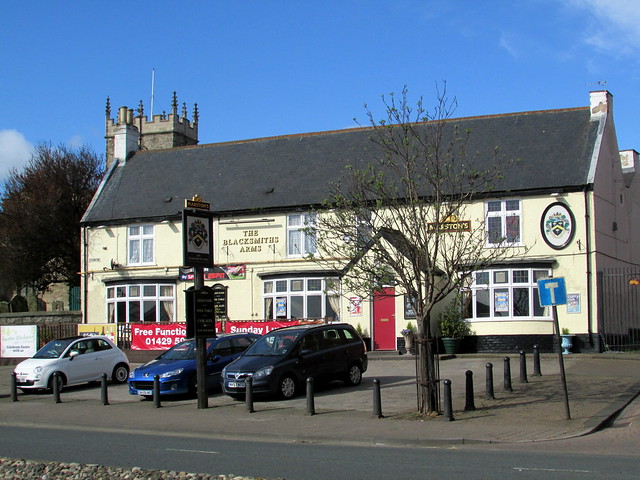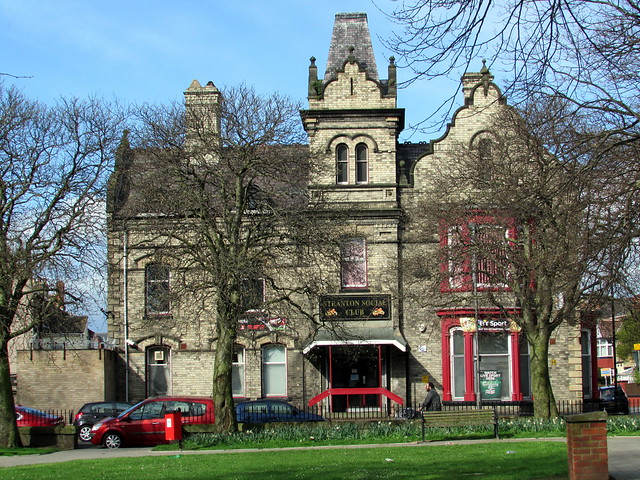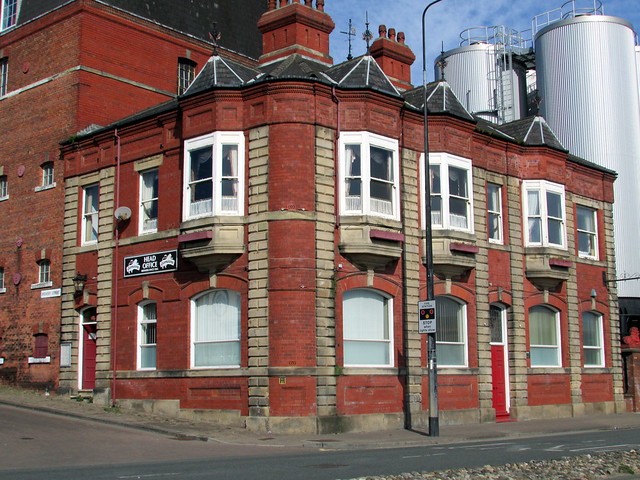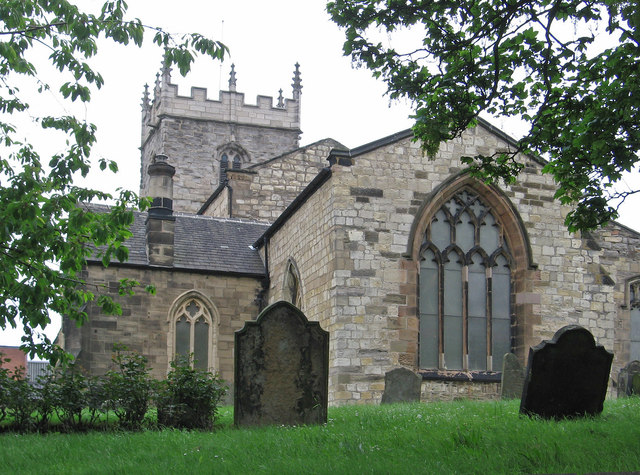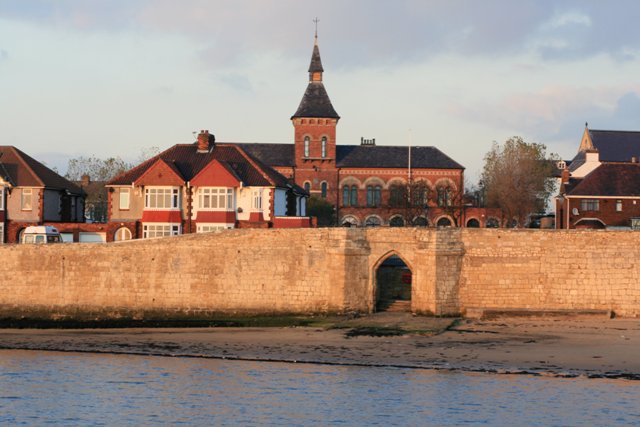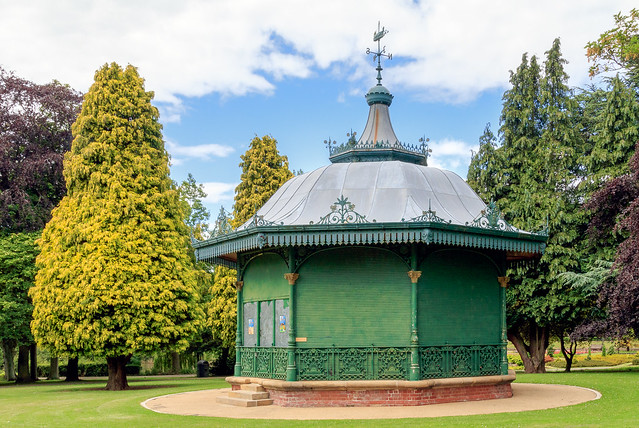That Was the Year That Was - 1987

-
Description
1987 After many years of research a new drug AZT is used for the treatment of AIDS. After a long period of growth the US stockmarket drops 22.6% in one day on October 19th and throughout the rest of the world major falls are recorded by the end of October with Hong Kong dropping by 45.8%. In the UK 2 major transport disasters happen when A cross-channel ferry capsizes and an underground fire in Kings Cross Tube Station. England also suffers one of the worst storms in history when Hurricane force winds hit much of the South of England. Events from the year 1987 in the United Kingdom. At the beginning of the year, the Archbishop of Canterbury's envoy Terry Waite was kidnapped in Lebanon and remained a hostage until 1991. The major political event of this year was the re-election of Margaret Thatcher in June, making her the longest continuously serving Prime Minister since Lord Liverpool in the early 19th century. The year was also marked by a number of disasters — the sinking of the ferry MS Herald of Free Enterprise, the Hungerford massacre, the "Great Storm", the Remembrance Day Bombing in Northern Ireland and the King's Cross fire. In 1987 three million people were out of work; the "big bang" had just revolutionised the City and there was wide concern that exorbitant salaries would distort pay scales; as heavy industry collapsed, what became known as the underclass was swelling; there had been riots in Tottenham; the gap between state and private education was becoming a chasm; beggars were back in the underpasses and the doorways of London's West End; the NHS was, as ever, a political minefield. Margaret Thatcher secures her third term in office 11 June – The 1987 General Election sees Margaret Thatcher secure her third term in office. However, her majority is reduced to 102 compared to the 144 seat majority gained at the election four years ago. High profile casualties of the election include the SDP's former leader Roy Jenkins (once a Labour Home Secretary) and the Ulster Unionist Party's 75-year-old Enoch Powell (a former Conservative MP). Four ethnic minority candidates are successful: Diane Abbott, Paul Boateng, Bernie Grant and Keith Vaz. Among the MP's retiring from parliament is 75-year-old James Callaghan, the former prime minister. DNA profiling In 1987, in the first ever mass DNA screen, the police and forensic scientists screened blood and saliva samples from 4,000 men aged between 17 and 34 who lived in the villages of Enderby, Narborough and nearby Littlethorpe and did not have an alibi for murders. The turn out rate was 98%, but the screen did not find any matches to the semen samples. The police and scientists expanded the screen to men with an alibi, but still did not find a match. In August 1987, a woman overheard a colleague, Ian Kelly, boasting that he had given a sample posing as a friend of his, Colin Pitchfork. Pitchfork had persuaded Kelly to take the test as he claimed he had already given a sample for a friend who had a flashing conviction. The police arrested Colin Pitchfork in September 1987, and scientists found that his DNA profile matched that of the murderer. Colin Pitchfork had previous convictions for flashing, and claimed that the murders had begun as flashings, but the girls had run away, which had excited him. In January 1988, Colin Pitchfork was sentenced to life imprisonment for the murders, and was told he had to serve a minimum of 30 years. A British scientist, Sir Alec Jeffreys, developed DNA profiling in the 1980s. DNA for profiling can be extracted from samples of human cells found at a Crime Scene, including blood, semen, skin, saliva, mucus, perspiration and the roots of hair, and Profiling can even be carried out on old and dried out samples. The case of Colin Pitchfork was the first murder conviction based on DNA profiling evidence (there was a previous rape conviction based on this type of evidence). 1987: Gunman kills 14 in Hungerford rampage A man has shot 14 people dead in the Berkshire town of Hungerford. Police identified the gunman as Michael Ryan, 27. Local people described him as a "loner" and a "gun fanatic". Ryan was armed with an automatic rifle, a pistol and at least one hand grenade when he went on the rampage early on Wednesday afternoon. His victims included his mother and a police officer who tried to tackle him in Hungerford which lies about 60 miles (96km) west of London. At least 16 people are known to have been injured. Ryan's first victim was a woman he shot dead as she picnicked with her two children in Savernake Forest about 10 miles (16km) from Hungerford. Soon afterwards at 1245, an armed man - identified by witnesses as Ryan - fired at a woman cashier in a nearby petrol station but missed. Less than 10 minutes later firefighters were called to a house fire in Hungerford where they found the body of a woman believed to be the gunman's mother. 'Fired without warning' By 1300 Ryan had moved on to Hungerford's main shopping area where he fired indiscriminately killing at least 12 people. Witnesses spoke of a heavily armed man in combat gear who opened fire without warning. As police realised the seriousness of the incident armed officers and helicopters were rushed to the area. But for much of the afternoon Ryan managed to evade the huge manhunt and was only later tracked down to a school on the outskirts of town. The building is now surrounded by armed police and negotiators have been brought in to persuade the gunman to give himself up. Michael Ryan later turned his gun on himself and was found dead inside the school by police. The death toll eventually reached 16. At the time the incident was the worst mass killing of recent times in Britain. It led to tighter restrictions on gun ownership with the introduction of the Firearms (Amendment) Act of 1988. Critics said the legislation did not go far enough to prevent other massacres occurring. In March 1996 Thomas Hamilton shot dead 16 school children and their teacher in the Scottish town of Dunblane. 1987: Hurricane winds batter southern England 15 October – During a weather forecast, BBC meteorologist Michael Fish reports "Earlier on today, apparently, a woman rang the BBC and said she heard there was a hurricane on the way; well, if you're watching, don't worry, there isn't, but having said that, actually, the weather will become very windy, but most of the strong winds, incidentally, will be down over Spain and across into France.". Hours later, Britain is hit by the worst storm for 284 years. Fish later drew criticism for the comments, but has since claimed that they referred to Florida, USA, and were linked to a news story immediately preceding the weather bulletin, but had been so widely repeated out of context that the British public remains convinced that he was referring to the approaching storm. Southern Britain has begun a massive clear-up operation after the worst night of storms in living memory. At least 13 people are known to have died and many dozens have been injured, mostly by falling trees and buildings. Rescue workers faced an unprecedented number of call-outs as winds hit 94 mph (151 km/h) in the capital and over 110 mph (177 km/h) in the Channel Islands. Weather forecasters have faced criticism for failing to predict the severity of the weather. The worst affected areas were along the south coast - in Kent five people died including two seamen in Dover Harbour, and in Dorset two firemen were killed as they answered an emergency call. The stormy weather was first predicted at the beginning of the week when the Meteorological Office identified a depression strengthening over the Atlantic. Last night BBC weatherman Michael Fish reassured viewers the system would track along the English Channel, but instead it cut a swathe right across the south of the country. Commuters were today advised to stay at home as hundreds of roads and railway lines remain blocked by fallen trees. Some houses and apartments had their roofs blown off. On the Isle of Wight the famous Shanklin Pier, nearly a century old, was reduced to driftwood and in Jaywick, Essex, a caravan park was flattened. Along the south coast damage to yachts and boat yards was extensive. In Folkestone a Sea Link ferry was blown aground and its crew had to be rescued. The insurance industry is bracing itself for huge payouts. Most household policies cover storm damage, and thousands of homeowners have already started claims. In the London of Borough of Ealing alone, 600 calls came from people whose homes and cars had been struck by falling trees and debris. Len Turner of Ealing Council said central funding from the government might be needed to deal with the exceptional clean-up costs local councils are facing. "It's going to take an enormous amount of effort and money; I hope we can look to the Government to support us because the burden on local rate payers is going to be enormous." 1987: Lester Piggott jailed for three years Former champion jockey, Lester Piggott, has been sentenced to three years imprsionment after being found guilty of an alleged tax fraud of over £3m. The 51-year-old remained stony-faced as he was sentenced by Mr Justice Farquharson at Ipswich Crown Court. But his wife, Susan, collapsed in tears as he was taken to Norwich prison. Piggott was jailed after failing to declare income to the Inland Revenue of £3.25m. The biggest sum on the charge sheet relates to an alleged omission of £1,359,726 from additional riding income. Another alleged that for 14 years, from 1971, he omitted income of £1,031,697 from bloodstock operations. False declarations Piggott, whose personal fortune is estimated at £20m, is said to have used different names to channel his earnings in secret bank accounts in Switzerland, the Bahamas, Singapore and the Cayman Islands. The nine times Derby winner has been prosecuted in the biggest individual income tax-dodging case ever brought in Britain and the sentence is the highest to be passed for a personal tax fraud. Piggott was charged after a joint Customs and Inland Revenue investigation, codenamed Centaur after the halfman, half-horse beast of mythology, into his affairs. The jockey was said to have signed false declarations to the Inland Revenue during three successive inquiries into his tax affairs between 1970 and 1985. The judge remarked that Piggott even misled his own accountants "until the matter was forced out of you" last year. Other leading jockeys and racing figures were also questioned during the inquiry but the Inland Revenue said it was "too early to say" whether more prosecutions will follow. Top racing figures have been left stunned by the punishment imposed on Piggott, who has become a household name throughout the world. The champion jockey, Pat Eddery said: "I am shocked and very sad. I did not think he would get three years, but the law is the law." The sentence was condemned as a "terrible injustice" by the Newmarket trainer, David Thom, who said Piggott had put "more money in the taxman's coffers than any 100 people could have done." But appeals for leniency by Mr John Mathew, QC, Piggott's counsel, had been rejected by the judge, who said he could not "pass over" the scale of Piggott's VAT and income tax evasion without an invitation to others tempted to cheat. He will be eligible for parole after one year or if early release is refused, could earn remission of one year for good behaviour. 1987 Timeline January - Most of Britain is affected by heavy snow and sub zero temperatures. 1 January – Personal Equity Plans permitting tax-free investments in shares are introduced. 2 January – Golliwogs are banned from Enid Blyton books by their publisher and replaced by politically correct gnomes following complaints that golliwogs were offensive to black people. 4 January – Economists predict that unemployment will fall below 3,000,000 by the end of this year. 5 January – Harold Macmillan, Lord Stockton, former prime minister, is buried in the village of Horsted Keynes, having died on 29 December at the age of 92. 7 January – Telford, the new town created in Shropshire some 20 years ago, is reported to have the highest unemployment rate in the West Midlands region, even eclipsing the unemployment levels seen in the city of Birmingham and nearby towns including Wolverhampton, Brierley Hill, Wednesbury and Bilston, which have lost a large percentage of traditional heavy industry since the late 1970s, although Brierley Hill's unemployment crisis is beginning to ease with the ongoing development of the Merry Hill Shopping Centre, which already includes two retail parks and a large shopping mall and is set to expand even further by the end of the decade. 13 January – Prince Edward leaves the Royal Marines just three months after joining. 14 January – Heavy snow falls across Britain leaving houses, towns, roads, railways and motor vehicles stranded and blocked. 15 January – Unemployment is reported to have fallen in December 1986 for the fifth month in succession. 20 January - Terry Waite, the special envoy of the Archbishop of Canterbury in Lebanon, disappears in Beirut while negotiating for the release of hostages. Police arrest 26 suspected football hooligans across Britain after a mass operation. 30 January – The flotation of British Airways begins. 11 February - British Airways is privatised and listed on the London Stock Exchange. Cynthia Payne is acquitted of controlling prostitutes in her London home. 12 February – Edwina Currie sparks controversy by stating that "good Christians won't get AIDS". 24 February – It is alleged that six Nazi war criminals are living in Britain. 26 February - Church of England's General Synod votes to allow the ordination of women. Rosie Barnes wins the Greenwich seat for the SDP from Labour in a by-election. 3 March – National Health Service prescription charges rise from £2.20 to £2.40. 6 March - British ferry MS Herald of Free Enterprise capsizes while leaving the harbour of Zeebrugge, Belgium, killing 193 on board. The value of the pound is at a five-year high. 13 March – 25-year-old Matthew Taylor wins Truro for the Liberals in the by-election caused by the death of David Penhaligon three months ago. 19 March – Winston Silcott, a 28-year-old black man, is sentenced to life imprisonment for the murder of PC Keith Blakelock in the Tottenham riots 17 months ago. 23 March – 31 people are injured when a suspected IRA bomb explodes at a British army barracks in Rheindahlen, West Germany. 27 March – Neil Kinnock meets Ronald Reagan in Washington DC. 29 March – Margaret Thatcher visits Moscow. 30 March – Christie's auction house in London sells one of Vincent van Gogh's iconic Sunflowers paintings for £24,750,000. 1 April – MP's vote against the restoration of the death penalty by 342–230. 3 April – The jewellery of the late Duchess of Windsor is sold at auction for £31 million, six times the expected value. 5 April - Arsenal win the Football League Cup for the first time in their history with a 2-1 win over Liverpool, earning them their first major trophy since 1979. Charlie Nicholas scores both of Arsenal's goals. 16 April – Conservative MP Harvey Proctor appears in Court charged with gross indecency. 22 April – The former prime minister Jim Callaghan is appointed to the Order of the Garter. He will be retiring from parliament after the general election. 29 April – Chancellor Nigel Lawson promises that the United Kingdom will soon have an income tax rate of 25p in the pound. 30 April – The House of Lords approve the sterilisation of a "mentally subnormal" 17-year-old female. 4 May - Everton win the Football League First Division title for the ninth time in their history. 8 May – Soldiers of the SAS kill eight members of the Provisional Irish Republican Army at Loughgal, County Antrim. 11 May - Margaret Thatcher calls a general election for 11 June, with most of the opinion polls pointing towards her securing a third successive election victory for the Conservatives, with the Labour opposition expected to increase its share of votes and seats in its first general election under the leadership of Neil Kinnock. British Rail renames Second class as Standard class. 14 May – Unemployment has fallen to 3,107,128. 15 May – Family Law Reform Act removes remaining legal distinctions between children born to married and unmarried parents. 16 May – Coventry City F.C. win the FA Cup for the first time in their history with a 3–2 win in the final over Tottenham Hotspur, who had won all of their previous seven FA Cup finals. 25 May - Aldershot F.C. become the first team to win promotion through the new Football League playoffs, winning promotion from the Fourth Division with a 3-0 aggregate win over their illustrious opponents Wolverhampton Wanderers (who have a total of eight major trophies to their name, the most recent just seven years ago). The Hampshire club have already condemned another illustrious side, Bolton Wanderers (four times FA Cup winners) to relegation to the Fourth Division for the first time in their history. 3 June – The last MORI poll before the general election shows the Conservatives 11 points ahead of Labour with 43% of the vote, while the Liberal/SDP Alliance's support stands at 24% and their hopes of building on their result at the last election look exceedingly slim. 11 June – The 1987 General Election sees Margaret Thatcher secure her third term in office. However, her majority is reduced to 102 compared to the 144 seat majority gained at the election four years ago. High profile casualties of the election include the SDP's former leader Roy Jenkins (once a Labour Home Secretary) and the Ulster Unionist Party's 75-year-old Enoch Powell (a former Conservative MP). Four ethnic minority candidates are successful: Diane Abbott, Paul Boateng, Bernie Grant and Keith Vaz. Among the MP's retiring from parliament is 75-year-old James Callaghan, the former prime minister. 18 June – Unemployment has fallen below 3 million for the first time since 1981 after the biggest monthly fall in unemployment since records began in 1948 seeing more than 100,000 of the unemployed find jobs in May. 19 June - Howard Kendall, managers of Football League champions Everton, resigns to take over of Atletico Bilbao in Spain. His successor at Everton is the club's assistant manager Colin Harvey. 22 June – Race riots break out in the Chapeltown area of Leeds. 25 June – A MORI poll shows support for the Conservative Party stands at almost 50% – the highest during Mrs Thatcher's time as leader. 29 June – 25 years after the first James Bond film was released, the 15th Bond film is released – with the spy now being played by Timothy Dalton. 30 June – Peter Beardsley, the 26-year-old England striker, becomes the most expensive player transferred between British clubs when he completes a £1.9 million move from Newcastle United to Liverpool. 12 July – £60 million is stolen during the Knightsbridge Security Deposit robbery. 16 July - British Airways and British Caledonian agree a £237 million merger. Unemployment is reported to be down to just over 2,900,000. 22 July – Palestinian cartoonist Naji al-Ali is shot in London; his condition is described as "critical". 24 July – Novelist and former Conservative MP Jeffrey Archer wins a libel case against Daily Star over allegations that he was involved in a vice ring. 29 July – The Channel Tunnel is given the go-ahead after Margaret Thatcher and François Mitterrand ratify the Treaty of Canterbury. It is expected to be open within six years. 31 July - The Attorney General institutes legal proceedings against The Daily Telegraph to prevent it publishing details from the book Spycatcher. The Queen opens the Docklands Light Railway in London, the first driver-less railway in Great Britain. August – Rick Astley’s Never Gonna Give You Up is released, the first of eight singles to reach the Top 10 in the UK. 4 August – Just months after confessing to a further two murders, the Moors Murderer Ian Brady claims that he committed a further five murders. 6 August – Dr David Owen resigns as leader of the Social Democratic Party after its members vote to merge with the Liberal Party. 10 August – One person a day in Britain is now reported to be dying of AIDS. 13 August - First building of post-war design to be Listed: Bracken House in the City of London, designed by Sir Albert Richardson as the Financial Times headquarters (1955–9). Unemployment continues to fall, with the 12th successive monthly fall bringing the national total to less than 2.9 million. 19 August - Michael Ryan shoots dead 14 people in the Berkshire town of Hungerford before taking his own life with a rifle. 16 people are injured, some of them seriously. Order of the Garter is opened to women. 21 August – The Hungerford massacre death toll rises to 16 with the deaths of two more victims in hospital from their injuries. 27 August – Robert Maclennan replaces David Owen as leader of the Social Democratic Party. 29 August – Naji Salim al-Ali dies in hospital more than five weeks after being shot. 30 August – David Owen forms a breakaway SDP. 7 September – Ford completes its takeover of the luxury sports car company Aston Martin. 9 September – 25 Liverpool football fans are extradited to Belgium to face charges of manslaughter in connection with the Heysel Stadium disaster more than two years ago. 11 September – The government unveils plans to abolish the Inner London Education Authority. 22 September – The government bans automatic weapons of the type used by Hungerford killer Michael Ryan. 23 September – An Australian court lifts the ban on the publication of Spycatcher. October - Construction work begins on the extension to the M40 motorway between Oxford and Birmingham. It is hoped that the motorway, providing an alternative route to the M6 and M1 from the midlands to London as well as improving road links with the midlands and the South Coast ports, will be fully operational by 1990. 1 October – Swedish home product retailer IKEA opens its first British store at Warrington in Cheshire. 9 October – Margaret Thatcher tells the Conservative Party Conference in Blackpool that she wants to continue as prime minister until 1994 and the age of 69, which would make her Britain's oldest prime minister since Harold Macmillan in 1963. 11 October – £1 million pound Operation Deepscan in Loch Ness fails to locate the legendary Loch Ness Monster. 15 – 16 October – Great Storm: Hurricane force winds batter much of south-east England, killing 23 people and causing extensive damage to property. 18 October – Two days after the end of the storm in south-east England, some 250,000 homes in the region are still without electricity. 19 October – Black Monday: Wall Street crash leads to £50 billion being wiped of the value of shares on the London stock exchange. 23 October – Retired English jockey Lester Piggott is jailed for 3 years after being convicted of tax evasion. 25 October – Peugeot begins production of its second car – the 405 four-door saloon – at the Ryton plant near Coventry. The first customers are set to take delivery of their cars after Christmas. A French-built estate version will be launched next year. 1 November – British Rail establishes a world speed record for diesel traction, 238.9 km/h (148.4 mph) with a test InterCity 125 formation between Darlington and York. 2 November – Peter Brooke succeeds Norman Tebbit as chairman of the Conservative Party. 3 November – It is announced that unemployment in Britain fell quicker during October than in any other European country. 5 November – London City Airport opens. 8 November – Enniskillen bombing: Eleven people are killed by a Provisional Irish Republican Army bomb at a Remembrance Day service at Enniskillen. 11 November – Customs officers in Southampton seize more than £50 million worth of cocaine – the most expensive haul of the drug ever found in Britain. 12 November – Unemployment has fallen to 2.7 million (just under 10% of the workforce), the lowest level of unemployment in Britain for over six years. 17 November – The government announces that the Poll tax (community charge) will be introduced in April 1990. 18 November – A fire at Kings Cross on the London Underground kills 31 people. 19 November – Conservative support has reached 50% in a MORI poll for the first time. 24 November - The government announces that free eye tests are to be abolished. Late November – The first Acid House raves are reported in the United Kingdom, many of them being in derelict buildings. December - The British-built Peugeot 405 is European Car of the Year, and Peugeot's first winner of the award for nearly 20 years. British sales begin in the new year, several months after it was launched in France. 9 December – The England cricket team's tour of Pakistan is nearly brought to a premature end when captain Mike Gatting and umpire Shakoor Rana row during a Test Match. 15 December – Channel Tunnel construction is initiated, and it is expected to open in 1993 or early 1994. 17 December – A year that has seen an excellent performance for the British economy ends with unemployment at less than 2.7 million. 25 December – ITV enjoys a record breaking audience when more than 26 million viewers tune in for the Christmas Day episode of Coronation Street, in which Hilda Ogden (Jean Alexander) makes her last appearance in the show after 23 years. 29 December – PWL release the Kylie Minogue single I Should Be So Lucky. Australian Minogue, 19, has already earned a cult following in Britain with her part in the hugely popular TV soap Neighbours. 31 December – 31 British and Belgian people are recognised in the New Year Honours for heroism shown in the rescue operation at the Zebrugge tragedy earlier in the year. Inflation remains low for the sixth year running, standing at 4.2% for 1987. Largest ever deficit to date on UK balance of payments. With overall unemployment falling below 3,000,000, youth unemployment is now below 1,000,000. Overall economy growth for the year reaches 5.5% - the highest since 1963. Television 16 January – The Zircon affair becomes public knowledge when The Guardian reports that the government ordered the BBC to shelve a documentary in the Secret Society series about the Zircon satellite. Two days later documentary maker Duncan Campbell is subject to an injunction preventing him from discussing or writing about the programme's content, but subsequently writes an article about the episode for the New Statesman. 29 January – Alasdair Milne is sacked by the newly appointed Chairman of the BBC Board of Governors, Marmaduke Hussey. He is replaced by a senior BBC accountant, Michael Checkland. 5 February - Princess Anne appears on sports quiz A Question of Sport, a matter of weeks after team captain Emlyn Hughes famously mistook a picture of her on a horse for jockey John Reid. The episode gains a record audience of 19 million viewers. 21 February – An apparently inebriated Oliver Reed appears on the ITV chat show Aspel & Company, where he stumbles and lurches around the set. 24 February – The sitcom Hardwicke House makes its debut on ITV. The series is badly received by critics and viewers and is cancelled after just two episodes (the second broadcast the following evening). The remaining five episodes of the series have never been transmitted. 26 February – Michael Checkland succeeds Alasdair Milne as Director-General of the BBC. 9 March – Debut of Central Television's Intimate Contact, a drama dealing with the issue of AIDS. 25 April – The Australian soap opera Prisoner: Cell Block H makes its debut on Central Television in the Midlands. This is believed by many viewers to be the series debut on British television, but in fact it had been running in the Yorkshire region since 1984. Central were the first region to conclude the series, however, in December 1991. 26 April – Channel 4's The Tube airs for the last time after five series. 22 May–20 June – Television coverage of the first Rugby World Cup from Australia and New Zealand. 9 June – Debut of the Tyne Tees produced chart show The Roxy, presented by David Jensen and Kevin Sharkey. The programme is intended as a stablemate for the Independent radio hit parade The Network Chart Show, following a similar format to the BBC's Top of the Pops, but its Newcastle-upon-Tyne location impinges on its ability to secure live performances. The show also suffers from poor ratings because it does not have a regular slot on the ITV network, and is cancelled in April 1988. 11 June–12 June – Coverage of the results of the 1987 general election is broadcast both on BBC1 and ITV. 19 June – Television debut of The Grand Knockout Tournament, an It's a Knockout special featuring members of the British Royal Family alongside sporting and other celebrities. Also known as It's a Royal Knockout, the event attracts much media derision and is deemed to have been a failure, although it raised £1 million for charity. 20 August – In the wake of the previous day's Hungerford massacre in which 16 people were shot dead by gun enthusiast Michael Ryan, the BBC, ITV and Channel 4 pull several forthcoming films and programmes containing violence from their schedules. Among them are the 1966 western Nevada Smith, an episode of The Professionals and the 1982 post-apocalyptic film Battletruck. A showing of First Blood is also cancelled. 7 September – Sylvester McCoy becomes the seventh actor to play the Doctor in BBC One's long-running Doctor Who. 14 September – After 30 years on ITV, the schools service ITV Schools moves to Channel 4, allowing ITV to concentrate on building a fully commercial daytime schedule. 15 October – During a weather forecast, BBC meteorologist Michael Fish reports "Earlier on today, apparently, a woman rang the BBC and said she heard there was a hurricane on the way; well, if you're watching, don't worry, there isn't, but having said that, actually, the weather will become very windy, but most of the strong winds, incidentally, will be down over Spain and across into France.". Hours later, Britain is hit by the worst storm for 284 years. Fish later drew criticism for the comments, but has since claimed that they referred to Florida, USA, and were linked to a news story immediately preceding the weather bulletin, but had been so widely repeated out of context that the British public remains convinced that he was referring to the approaching storm. 16 October – As a result of the Great Storm of 1987, electrical power to TV-am's studios is lost and an emergency programme has to be transmitted from facilities at Thames Television's Euston Road centre using reports from TV-am's own crews and those of ITN, TSW and TVS. The BBC's Breakfast Time, which would usually come from Lime Grove and was able to broadcast as the studios were without power, as was most of BBC Television Centre at Wood Lane. The early part of the programme was broadcast from the continuity suite at TV Centre usually used for Children's BBC presentation as this area had generator support, before a larger studio was able to be brought into use. 4 November–18 November – Damon and Debbie becomes the first 'soap bubble'. It was a miniseries which took two characters from Brookside into new locations and their own story. 17 November – The BBC sees the first appearance of The 999 Programme from S4C Fireman Sam first voiced by John Alderton in the early years. 23 November – The TV-am strike begins after members of the technicians' union the ACTT walk out in a dispute over the station's ‘Caring Christmas Campaign’. What is meant to be a 24-hour stoppage continues for several months when staff are locked out by Managing Director Bruce Gyngell. TV-am is unable to broadcast Good Morning Britain, the regular format is replaced with shows such as Flipper, Batman and Happy Days. By December a skeleton service that sees non-technical staff operating cameras and Gyngell himself directing proceedings, begin to allow Good Morning Britain to start broadcasting again. The strikers are eventually sacked and replaced with non union staff. Viewing figures remain high throughout the disruption, which continues well into 1988, although normal programming gradually resumes. Other ITV stations later follow Gyngell's example. 28 November – Ventriloquist Jimmy Tamley wins New Faces of '87, coming just ahead of comedian Joe Pasquale, who is second. December – Thamesside TV, a pirate TV station set up by Thameside Radio, goes on air in the same city. There were only two known broadcasts in December 1987. 25 December - ITV enjoys a record-breaking audience when more than 26 million viewers tune in for the Christmas Day episode of Coronation Street, in which Hilda Ogden (Jean Alexander) makes her last appearance in the show after 23 years. 31 December – In an unusual move, the Chimes of Big Ben are integrated into an episode of EastEnders on BBC 1. Character Den Watts brought a television into the bar of the Queen Vic, 'watched' the chimes in their entirety, and the episode resumed. Network 21, a Pirate television station in London, broadcasts for around 30 minutes on Friday evenings. BBC1 January - Thundercats 9 January – Rockliffe's Babies (1987–1988) 15 September – Bad Boyes (1987–1988) 26 September – ChuckleVision (1987—2009) Going Live! (1987–1993) 12 October – Going for Gold (BBC 1987–1996, Channel 5 2008 – 2009) 17 November – Fireman Sam (BBC 1987–1994, 2005–2008, Channel 5 & CITV 2008–present) BBC2 7 January - Filthy, Rich & Catflap (1987) 9 March – French and Saunders (1987–2007) ITV 6 January – Inspector Morse (1987–2000) 7 January – Allsorts (1987–1995) 9 March – Intimate Contact (1987) 1 May – Matlock (1987–1997) 9 June – The Roxy (1987–1988) 5 July – Watching (1987–1993) 2 August – The Ruth Rendell Mysteries (1987–2002) 7 September – Knightmare (1987–1994) The Time, The Place (1987–1998) Chain Letters (1987–1997) 13 September – The New Statesman (1987–1994) 18 October – The Charmer (1987) Unknown – Playbox (1987-1992) Channel 4 1 May – After Dark (1987–1997, BBC 2003) 3 May – Network 7 (1987–1988) 4 November – Damon and Debbie (1987) Music Number one singles "Reet Petite" - Jackie Wilson "Jack Your Body" - Steve "Silk" Hurley "I Knew You Were Waiting (For Me)" - Aretha Franklin and George Michael "Stand By Me" - Ben E. King "Everything I Own" - Boy George "Respectable" - Mel and Kim "Let It Be" - Ferry Aid "La Isla Bonita" - Madonna "Nothing's Gonna Stop Us Now" - Starship "I Wanna Dance With Somebody (Who Loves Me)" - Whitney Houston "Star Trekkin'" - The Firm "It's a Sin" - Pet Shop Boys "Who's That Girl" - Madonna "La Bamba" - Los Lobos "I Just Can't Stop Loving You" - Michael Jackson and Siedah Garrett "Never Gonna Give You Up" - Rick Astley "Pump Up the Volume" - MARRS "You Win Again" - Bee Gees "China in Your Hand" - T'Pau "Always on My Mind" - Pet Shop Boys -
Owner
brizzle born and bred -
Source
Flickr (Flickr) -
License
What does this mean? Attribution-NonCommercial-ShareAlike License
-
Further information
Link: https://www.flickr.com/photos/20654194@N07/17848848619/
Resource type: Image
Added by: Peter Smith
Last modified: 7 years, 11 months ago
Viewed: 1198 times
Picture Taken: 2015-05-24T10:55:09 -
Co-Curate tags
